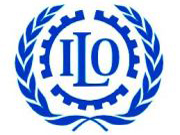Upskilling out of the downturn

On March 29th and 30th, around 80 participants took part in the Global Dialogue Forum on Strategies for Sectoral Training and Employment Security organized by the ILO in Geneva. The aim of the forum was to examine current and future skills needs across different sectors as a basis for proposing skills development and vocational training education strategies to support post-crisis employment security and enhanced business productivity and competitiveness.
The Forum was composed of Employer and Worker’s representatives as well as government officials from more than 20 countries. Some intergovernmental organizations such as the European Commission, the OECD (Organisation for Economic Co-operation and Development), the World Bank and the ITUC also had some presence.
During the two days debate some crucial issues were raised. It has been said that the jobs lost due to the crisis were mainly well-paid and performed by men while those gained were less paid and were done by women. It has also been emphasized that training is a broad concept and has different meanings across the world. But generally, highly paid workers in highly qualified occupations have easier access to training.
The increasing relevance of social partners in decision and policy making processes regarding workers’ skills has been underlined. UNI’s Lorenzo De Santis and Jakob Thiemann introduced to the Forum the Joint Declaration signed by UNI europa and Eurociett on training for temporary agency workers as an example of good collaboration between social partners.
Finally, the Forum adopted a consensus-based recommendation which recalls “the importance and relevance” of the Global Jobs Pact elaborated by TUAC, the ITUC and the Global Unions among other major instruments. It also recognizes the importance of sectoral skills strategies developed through social dialogue, the need of facilitating access to skills programmes to disadvantaged groups and the necessity to align skills development policies with national growth strategies. The recommendation will serve as a guide to the forthcoming G20 Ministerial meeting in Washington DC in terms of training strategy.




